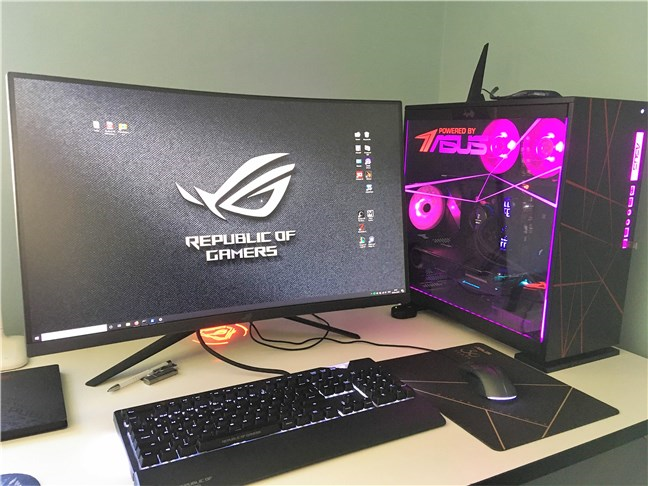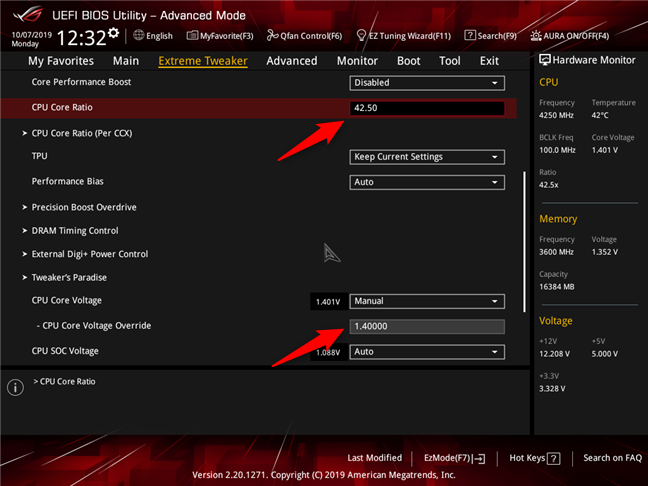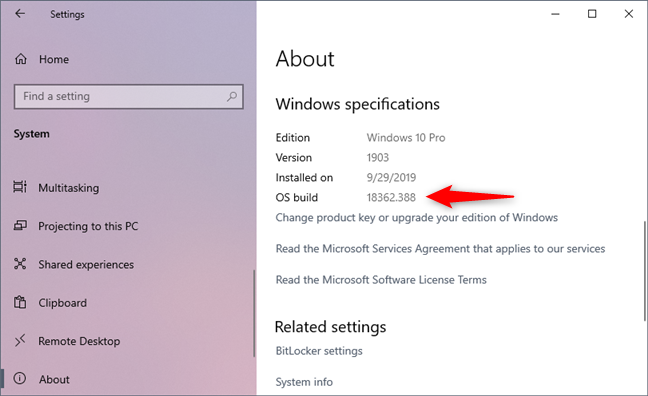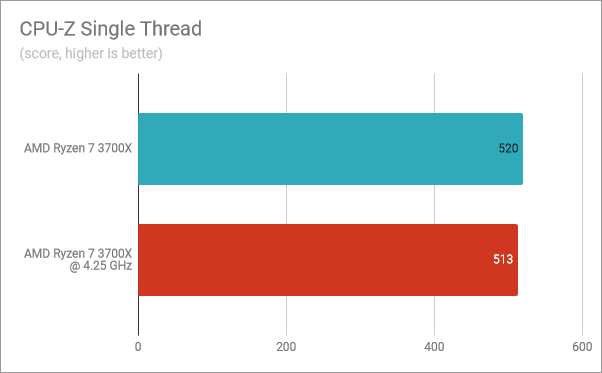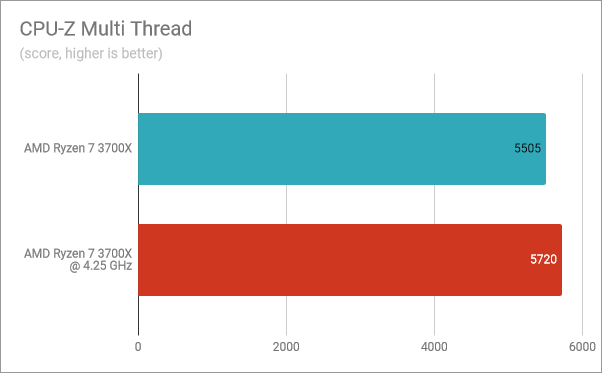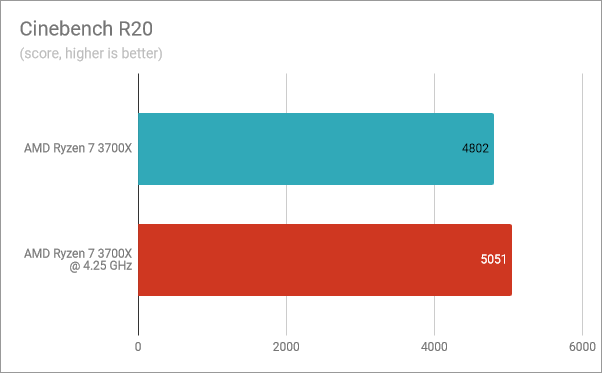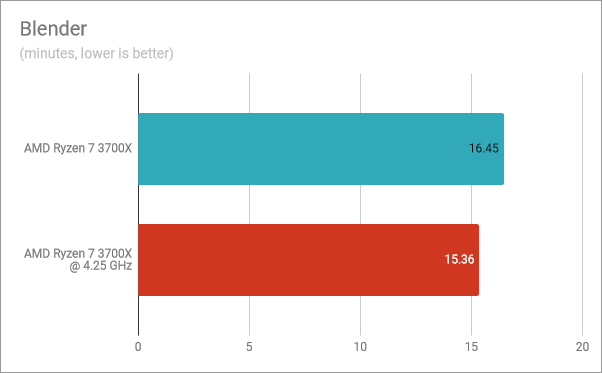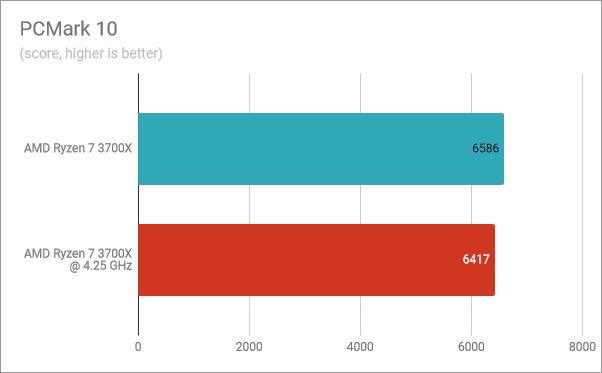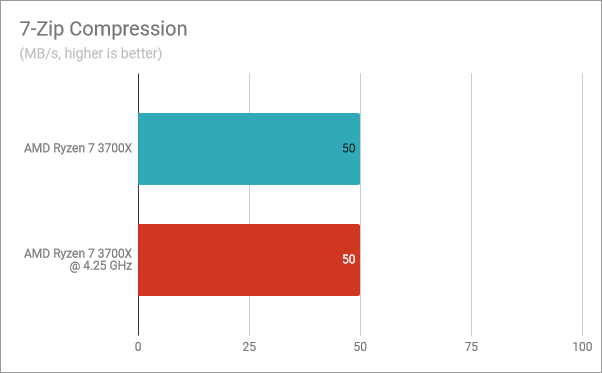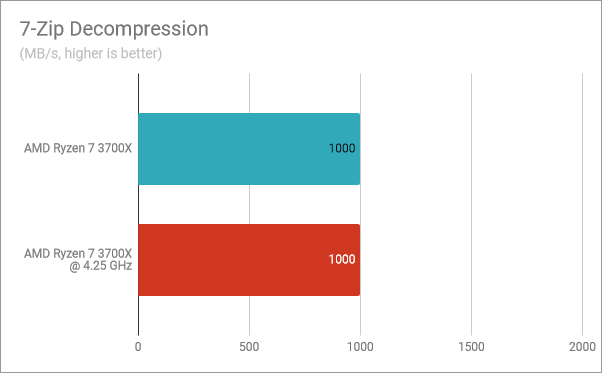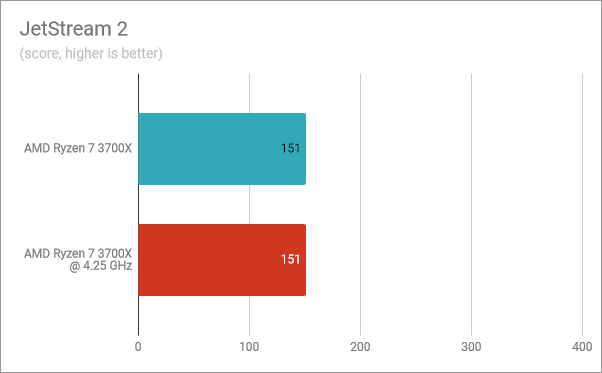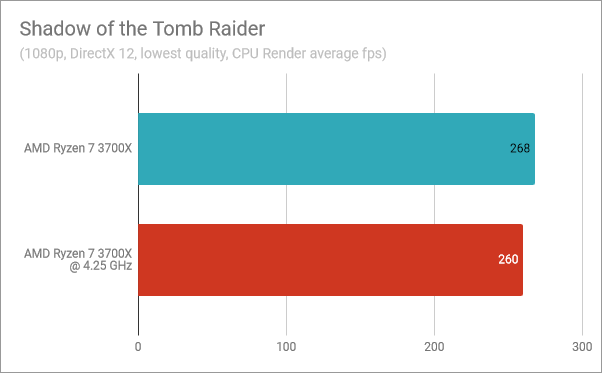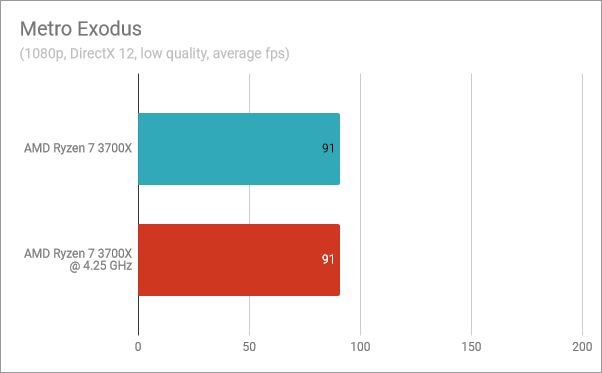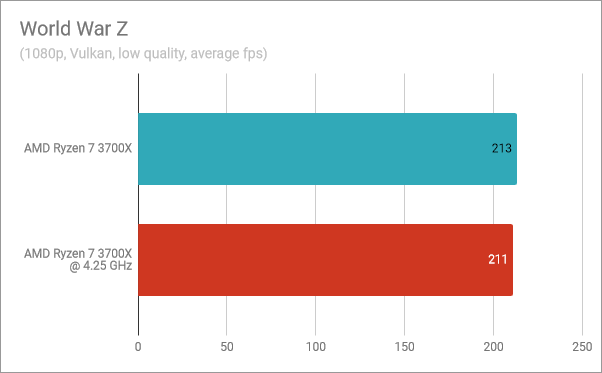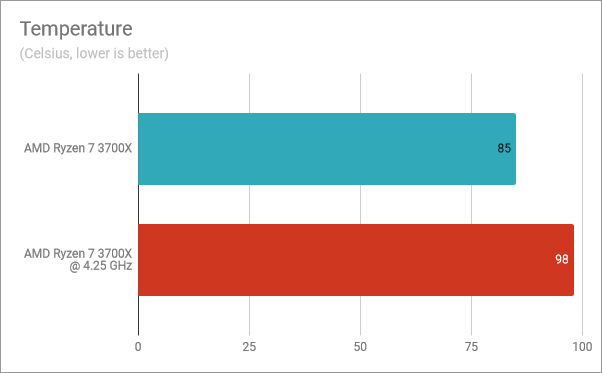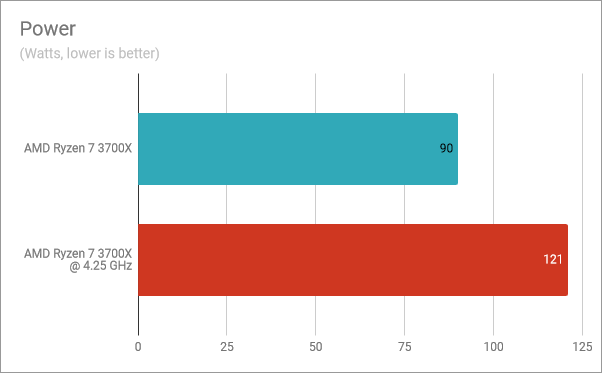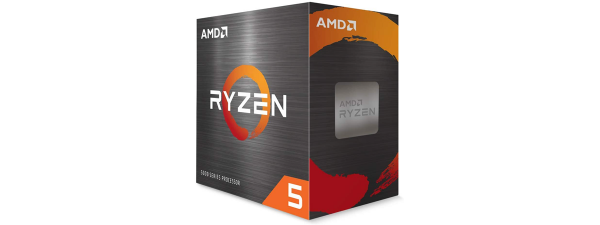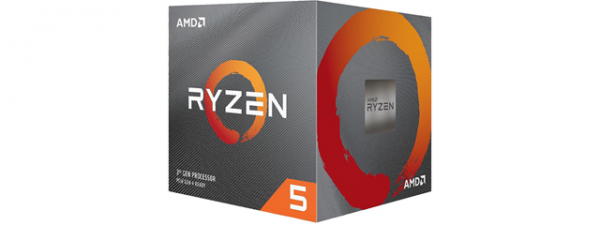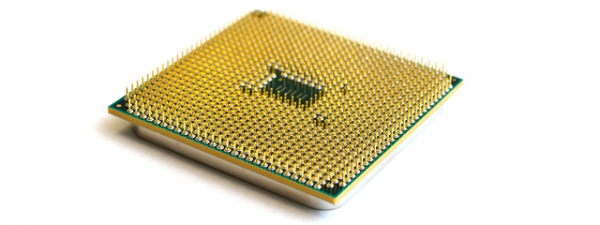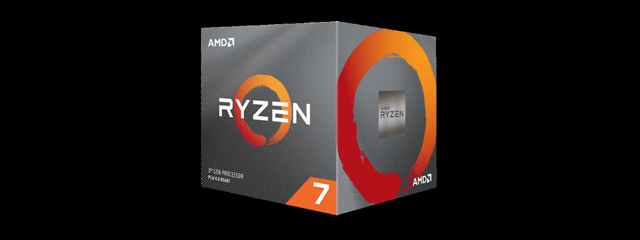
Ryzen 7 3700X is one of the best processors released by AMD in 2019. With its eight cores and sixteen threads, running at a base clock of 3.6 GHz, and having the ability to boost to a maximum of 4.4 GHz, the Ryzen 7 3700X offers a great balance between price and performance. It is a high performance processor, both in gaming machines, as well as in multi-threaded situations, like video editing. However, we could not refrain from asking ourselves: if we were to overclock the AMD Ryzen 3700X, would it become even more powerful? See what you gain and what you lose, when overclocking this processor, in this article:
Overclocking the AMD Ryzen 7 3700X: How did we do it?
The Ryzen 7 3700X has eight physical cores, 16 threads, running at 3600 MHz, and going up to 4.4 GHz, 4 MB of Level 2 cache, and 32 MB of Level 3 cache. This CPU is built on a manufacturing process of just 7 nanometers, and it is not just fast, but also energy-efficient, coming with a low TDP of only 65 Watts.
Overclocking a processor is a rather complex task. The results you experience depend on the computer that you have. However, the most important elements for overclocking are a good motherboard and excellent cooling. That's why, before we show you the maximum frequency at which our AMD Ryzen 7 3700X processor remained stable, we would like to share the hardware configuration that we used for this purpose:
- Motherboard: ASUS ROG Crosshair VIII Hero (Wi-Fi)
- Cooler: ROG Ryou 120
- Memory: HyperX Predator DDR4 RGB Memory (2 x 8GB, 3600MHz)
- Graphics Card: ASUS ROG STRIX GTX 1660 Ti GAMING OC
- Storage: ADATA XPG Gammix S11 Pro SSD
- Monitor: ASUS ROG Strix XG32VQ Curved Gaming Monitor (32-inch WQHD 2560 x 1440, 144Hz)
- Power Supply Unit: ASUS ROG Thor 850W Platinum
- Operating System: Windows 10 Pro x64 with May 2019 Update
The ASUS ROG Crosshair VIII Hero (Wi-Fi) motherboard has an excellent UEFI BIOS, which is rich in features and options that you can tweak as you like. That's why we chose to do the overclocking of the processor from the UEFI BIOS instead of using AMD's Ryzen Master software.
After hours of testing and trying but failing, we managed to overclock the AMD Ryzen 7 3700X to a speed of 4.25 GHz, on a voltage of 1.40. Any more than that, and the system would crash and become unusable.
The maximum speed that we managed to reach on our overclocked AMD Ryzen 7 3700X (4.25 GHz) is 18% higher than its 3.6 GHz base clock speed. You should also take note of the fact that we did an all-core overclock, which means that all the cores on the AMD Ryzen 7 3700X were running at 4.25 GHz. To see whether the processor performance is better or worse, we ran the same benchmarks twice, once when running at stock speed and once when the CPU was overclocked. All the benchmarks were run on Windows 10 Pro, version 1903, build 18362.388, and the latest drivers available.
Now let's see what results we have had in games and benchmarks:
Do you get a performance boost from overclocking the AMD Ryzen 7 3700X?
We started with the CPU-Z Single Thread benchmark, which tests the single-core performance of the processor. With the AMD Ryzen 7 3700X overclocked at 4.25 GHz, we got a score of 513 points, which is a bit lower than the 520 points that we got when running at the standard clock speeds (a speed decrease of 1.35%). That's because the 4.25 GHz frequency of the overclocked processor is lower than the default 4.4 GHz boost clock, reached by the Ryzen 7 3700X automatically, through its Precision Boost feature.
In the CPU-Z Multi Thread test, the overclocked AMD Ryzen 7 3700X got a score of 5720 points. It is a 3.91% increase compared to the stock speeds of the processor.
In Cinebench R20, the Ryzen 7 3700X overclocked at 4.25 GHz was 5.19% faster than its default factory version.
In Blender, the overclocked Ryzen 7 3700X was also faster, by approximately one minute. Compared to when running at factory clocks, this is an improvement of 6.63% for the time spent to finish the rendering of the two scenes in Blender.
PCMark 10 tells us how capable a processor is in daily computing tasks such as web browsing, video conferencing, apps start-up times, productivity, and digital content creation. In this benchmark, the overclocked AMD Ryzen 7 3700X was slower by 2.57% compared to the stock version.
In 7-Zip's benchmark, the overclocked Ryzen 7 3700X was as fast the non-overclocked version while testing the file compression speed.
We also saw the same performance in 7-Zip's decompression test: both the overclocked and stock Ryzen 7 3700X had the same result.
We also ran JetStream 2 in Google Chrome to check the processor's speed when browsing the web. Again, we got the same score, regardless of whether we used the AMD Ryzen 7 3700X at stock clock speeds or overclocked.
If you want to overclock your processor, there's a high chance that you are a gamer who wants to squeeze the maximum performance possible when playing. That's why we also ran a few games. We used 1080p resolution and the lowest graphic details available for each of them, so that the video card did not slow down the processor.
In Shadow of the Tomb Raider, the CPU Render measurement showed that the overclocked Ryzen 7 3700X generated eight frames less than the factory version.
In Metro Exodus, we saw no difference between the stock version and the overclocked version of AMD Ryzen 7 3700X, as both managed to reach 91 frames per second.
In World War Z, running on Vulkan, the overclocked Ryzen 7 3700X rendered two frames less than its factory version.
We would have liked to showcase the temperatures and power consumption of the overclocked processor, running Prime95. However, in this app, our overclocked AMD Ryzen 7 3700X refused to go through. Each time we tried to run Prime95, the computer would shut down due to critical temperatures reached by the overclocked processor.
However, we were able to monitor the temperatures and power consumption when running Blender - a rendering benchmark that uses the processor at its maximum. To check the processor's temperatures and wattage, we used HWiNFO64. The maximum temperature reached by the Ryzen 7 3700X when using factory clocks was 85 degrees Celsius (185 degrees Fahrenheit), which is under its official maximum temperature of 95 degrees. However, when we overclocked it, it surpassed the official maximum and reached 98 degrees Celsius (208 degrees Fahrenheit). Such temperatures affect the longevity of the processor.
As for the power consumption, the Ryzen 7 3700X drew a maximum of 90 Watts when running Blender. When overclocked, its wattage rose to a significantly higher 121 Watts.
Conclusion: Do not bother overclocking the AMD Ryzen 7 3700X
We are not pleased with the results of our benchmarking experiment because of the following:
- In some benchmarks, we noticed a performance loss from overclocking
- We did see improvements in the rendering benchmarks, where multi-thread performance is essential. However, they were negligible for most users
- The operating temperatures increase a lot, negatively affecting the longevity of the processor
- The power consumption rises a lot
We recommend that you use the AMD Ryzen 7 3700X processor with its default settings. Let the Precision Boost feature do its thing to dynamically boost the operating frequencies, efficiently, whenever AMD's algorithms find it necessary. We made an analysis of Precision Boost and its performance impact, and we were pleasantly surprised with the results. For more details, read: The performance impact of Precision Boost for AMD Ryzen processors.
Our conclusion is that the overall experience you get from the stock AMD Ryzen 7 3700X is a lot better than when overclocking it to 4.25 GHz.
Did you overclock your AMD Ryzen 7 3700X processor?
If you did, what was the maximum speed where you could run it stably? Did you manage to go past our 4.25 GHz? If you did, what kind of cooling solution did you use? Share your experience about overclocking the AMD Ryzen 7 3700X processor, in the comments section below.


 10.10.2019
10.10.2019 